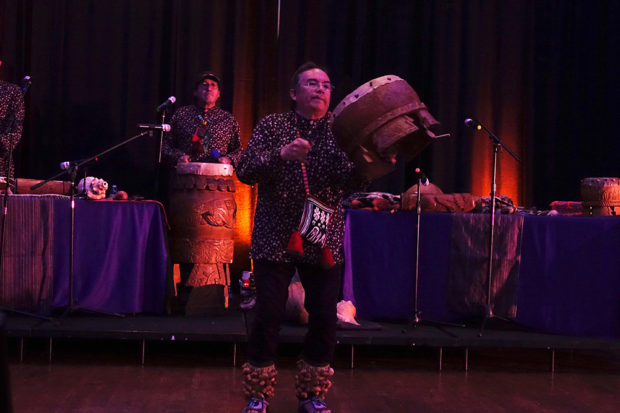
By Eduardo Stanley
Rock and Roll, the young music that prevailed overwhelmingly since the 1950s, emerged in English. In countries where another language is spoken, it is common for local bands to sing in English or in their language —or both.
In the U.S., we have seen the emergence of Spanish rock for about 20 years, a trend accepted even by those who do not speak the language. On the other hand, “cross over” —mixing two languages in songs, especially Spanish and English— is well accepted but not very popular.
However, there is a little known trend within rock that is gaining more and more followers: indigenous rock, that is, rock that is expressed in the language of the first inhabitants of different regions, and not in the language imposed by colonizers.
“I was in high school when the armed uprising of the ELZN (Zapatista Army of National Liberation, 1994) arose and revived the repressed feeling of identity that has been dormant for centuries,” said Damián Martínez, a member of the rock band Sak Tzevul. (which means “Relámpago” in Tzotzil language, www.saktzevul.com) of Chiapas, Mexico, which sings mainly in Tzeltal, one of the Mayan languages. “It coincided with my own youthful rebelliousness at that age.”

On Nov. 9, Martínez performed in a short concert in Madera —home to thousands of indigenous immigrants from southern Mexico who come to work mainly in the fields.
“Rock is the music closest to you when you’re young; the adult world is bothered by that young man playing the electric guitar. Rock is the rebellious music of young people,” said Martínez.
After 20 years of that initiation, indigenous rock continues to increase its audience, the number of bands and artists who sing in indigenous languages continues to grow and the expressions of this musical genre are also enriched.
“Aside from the language, my idea was to merge genres of music that allow us to express ourselves,” said Martínez, who added that in Mexico there are more than 200 bands and artists who sing in different indigenous languages.
Despite the growth of this artistic movement, Martínez regrets the racism and discrimination that exists in Mexico, which is expressed in comments they receive particularly through social media.
“This movement will grow despite everything, especially when young people understand that their language and culture are valuable,” Martinez said. He currently produces music and seeks to improve the recording quality of these bands and artists. “We have had meetings with similar groups from other countries, such as Tibet, Greenland, Alaska, Peru, Argentina … It is a worldwide movement.”
Although indigenous rock is a relatively new phenomenon, the recognition for pre-Hispanic music is earlier. For example, Tribu, one of the most notable musical groups in Mexico, has been performing this music for more than 40 years, interpreted with pre-Hispanic instruments as well. Tribu has influenced the new generations of musicians in Mexico and performed in Fresno on Oct. 26 before a dazzled audience.

Rodrigo Ayuujk Vargas sings in Mixe, one of the 16 original languages of Oaxaca, Mexico, and performed his music in Madera alongside Martinez.
“When my sister was going to get married I wondered whether I should get her a material gift or something different, so then I thought about writing a song for her. First it was instrumental, but I felt it was missing something, so then I added lyrics, in Mixe…I named it ‘Fiesta’,” said Vargas, a resident of San Jose, Calif.
“ My brother took the recording to the community radio and people liked it, that’s what motivated me to continue composing in Mixe!”
In his songs, Vargas tells the stories of his people who live “in the north,” like him, and he seeks to highlight the importance of his language.

“Sometimes my fellow countrymen who are recent arrivals act as if they don’t speak Mixe!” said Vargas. “This angers me!”
But in Vargas’ case we won’t find an Elvis Presley singing in Mixe either. This rock incorporates the language, but it is also “polluted” by other more Latin rhythms, such as cumbia, giving way to a more original music fusion, well received by its audience.
“There are a lot of people who thank us for singing in Mixe!” an excited Vargas said. “This motivates us to continue!”
Vargas began composing in 2008 and in 2013 he established his first band, “Tres Surcos.” He also is exploring acoustic and electronic.
“We perform in many places, the people receive us well…I feel this movement is growing. A friend even started composing in Chatino, another one of the languages of Oaxaca!” Vargas concluded.
*****
Eduardo Stanley is a freelance journalist for several Latino media outlets and a Spanish radio show host at KFCF in Fresno. He is also a photographer. To learn more about his work, visit www.eduardostanley.com.
